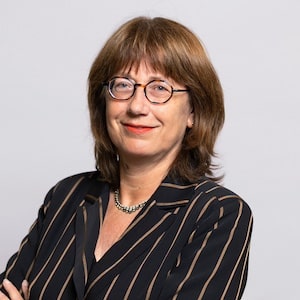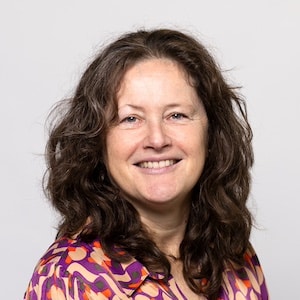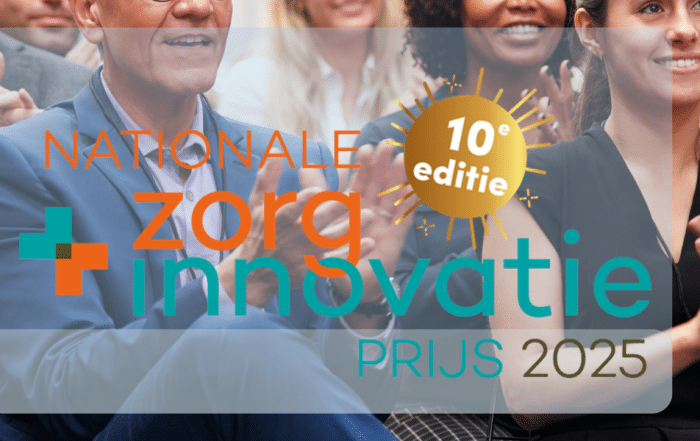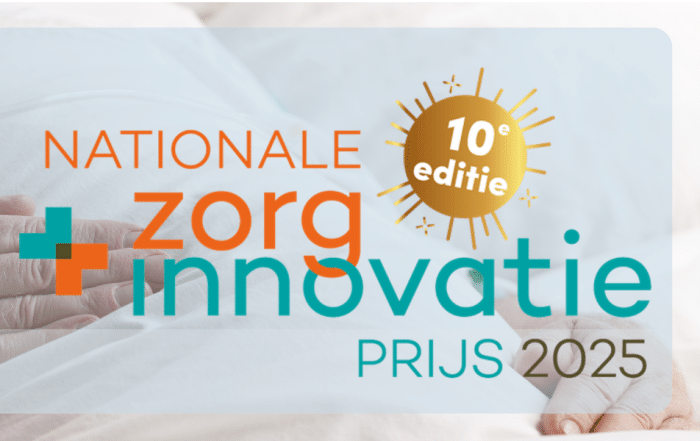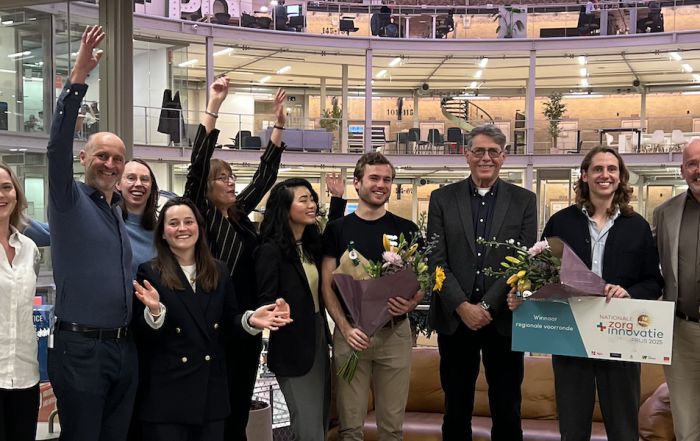Pacmed: ‘Even healthcare providers learn from our software’
Winning the regional preliminaries for the Zorginnovatieprijs 2025. For Pacmed co-founder Wouter Kroese, this means a great support in the continued development of Pacmed Critical, their AI dashboard for Intensive Care units. "Initiatives like this are really of enormous value to the Dutch healthcare system," he said.
“The pitch event for the regional preliminaries of the Zorginnovatieprijs 2025 was very inspirational to us for several reasons,” Kroese says. In the Haarlem Koepel, he presented Pacmed Critical, the winning healthcare innovation.
The regional preliminary round for Noord-Holland, Flevoland and the Gooi and Vecht region is organised annually by the Zorg2040 partners: Amsterdam Economic Board, ROM InWest, Sigra, Rabobank and AmsterdamAI. The goal: to put healthcare innovations from this region in the spotlight, help them find partners and upscale. We do this because healthcare innovations are badly needed to make healthcare future-proof.
AI support for Intensive Care
Pacmed developed an integrated system that uses AI technology to process the increasing amount of data in the ICU into exactly the information caregivers need. They can see at a glance how the ICU department and its patients are doing. With his associates Willem Herter and Hidde Hovenkamp, Kroese planted the seed for this innovative AI application back in 2014.
The three participate in the National Think Tank that year. With the theme: the social value of Big Data. “This was the buzzword before Artificial Intelligence, or AI, became that,” Kroese laughs. “We marveled that in healthcare, there was a lot of data available. But an application to extract value from this was still largely lacking. We wanted to make sure this was done in a responsible and socially valuable way.”
No AI super-doctor
The trio explicitly did not want to develop an ‘AI super-doctor’, as IBM promised at the time with its supercomputer Watson. “We focused from the very beginning on a system that creates synergy between healthcare provider and computer,” Kroese said. “With my background in medicine and logic, and the expertise of the other team members, we were able to bridge the gap between medical care and technology.”
Its first real product was software that provided general practitioners with data-driven support for treatment selection. In the years since, according to Kroese, Pacmed has been active in “virtually all areas of healthcare. The start of the COVID crisis gave Kroese and his associates a decisive push into Intensive Care.
More patients, less staff
“Besides the large amount of data available, the doctors there were already used to working with scores and predictions,” Kroese says. “In addition, there is a lack of the highly trained ICU nurses. Some hospitals even have to stop their acute care due to staff shortages. Our technology makes it possible to treat more patients in ICUs with fewer staff.”
Pacmed has also joined in a partnership with the Amsterdam UMC to address IC problems since 2017. Kroese: “This allowed us to start working directly with the professionals who would be using our solution. That really gave us a flying start. In close consultation, we focused our first solution on answering one crucial question: when is it safe to discharge a patient from the ICU?”
Solid medical data foundation
Together with the “very involved and collaborative” medics, Kroese and colleagues threw themselves into this important first challenge. It would keep them busy for several years. “There was a lot of data available,” Kroese says. “That data arises during the clinical process, but is not collected for research or application of decision support. Making this ‘digital trail’ of thousands of parameters suitable for our AI-driven solution turned out to be a very challenging and time-consuming job.”
Pacmed is currently reaping the benefits of this solid data foundation in several ways. Kroese: “Our software is now running at Amsterdam UMC, OLVG and Eindhoven’s Catharina Hospital. It is currently being implemented at the Medisch Spectrum Twente. We recently heard from a physician who was able to discharge a patient from ICU a day earlier thanks to the insights of our software,” says a proud Kroese. “We also notice that healthcare providers learn from our software. For example, they gain new insights into risk factors that they themselves might not have immediately thought of.”
This gives Kroese and his colleagues even more energy to develop other valuable applications for more hospitals. “For example, our ICU predictor is now ‘live,'” he says. “That helps predict required ICU capacity. Furthermore, we are working on showing overviews per organ system.”
Doctors can then zoom in further on specific parameters and predictions about possible complications. Kroese: “Soon we will present to intensivists how all these insights and overviews come together, so that our software always provides exactly the information they need at a glance. Glance saves a lot of time and helps them provide even better care to more patients.”
New functionality and customers
Kroese is convinced that winning a seat in the finals for the National Zorginnovatieprijs 2025 is going to be of great value to Pacmed. “Our team has worked extremely hard. Our partners have stuck out their necks for us. This is real confirmation to all of us that we have made great strides together. Moreover, the recognition will give us support next year as we grow into new functionality as well as new customers.”
Despite the huge focus on this type of technology, Kroese says scaling up proven AI solutions in healthcare could be much faster. “The Netherlands is a perfect country when it comes to collaborative development and testing of innovations,” he observes. “Unfortunately, scaling up is very slow. A lot of time and resources go into pilots and trials. Parties still too often want to reinvent the wheel themselves.”
Partner of the Amsterdam Economic Board
Given the great potential and the increasing pressure on access to care, hospitals and the entire health sector should show more decisiveness to enable scale-up of AI, Kroese argues. “Again, I think our election is going to be of real value. As part of the award, we are now a one-year partner of the Amsterdam Economic Board.”
This network of companies, knowledge and healthcare institutions and governments offers Pacmed great opportunities to connect with relevant partners, also outside the LSH bubble. At Pacmed, business developer Steven Jonis has taken on the partnership.
As a partner, Pacmed can join a network of parties with a similar focus on data-driven innovation in healthcare. For example, Health Data Space Amsterdam, an initiative started by the Amsterdam Economic Board, developed the ethical, legal and technical frameworks for unlocking data in the public sphere.
“These kinds of initiatives are of enormous value to the Dutch health care system. They provide the opportunity to innovate faster,” Kroese said. “We are very happy and proud that we can now start contributing to this as well.”
Text: Arnoud Groot
10 March 2025
Read more about
Contact us
Want to keep up to date?
Get the best regional news and events (in Dutch) via the Board Update newsletter
Share this news
Want to keep informed?
Follow us daily on LinkedIn and sign up for the Board Update newsletter.
Read more
- Focusing more on women in health care innovation and research will have ...
- What is the Amsterdam Metropolitan Area’s position on critical raw materials? ...
- Preparations for the National Zorginnovatieprijs 2026 by Zorginnovatie.nl are underway, and registration ...


